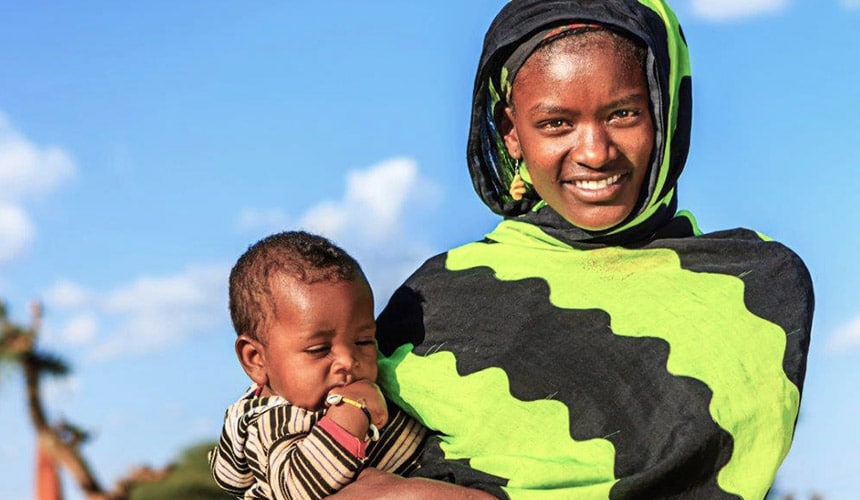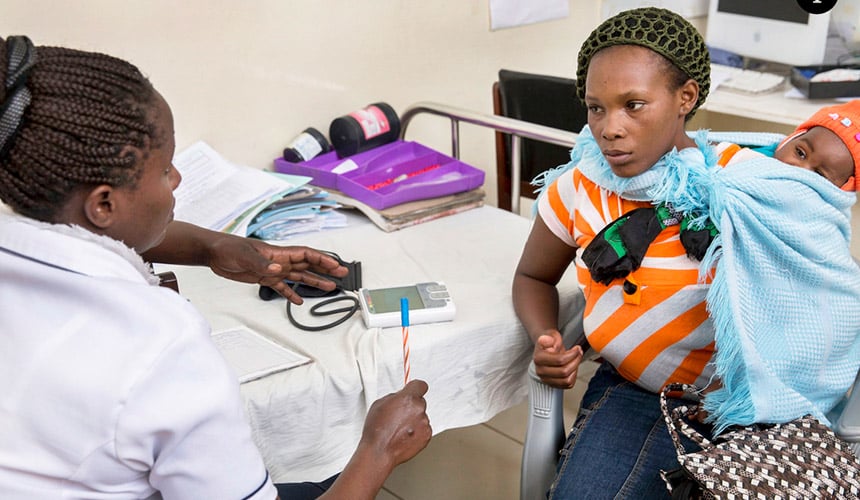The Problem
Quality of care is a fundamental principle of good family planning and reproductive health programming. At its heart lie respectful and supportive client-provider interactions, which play a critical role in ensuring uptake, continued use, and sustained delivery of services. To ensure that care is high quality and client-centered, health facilities must collect and address client feedback on services received. However, providers often find it difficult to capture client perspectives on service delivery in a meaningful way. Commonly used approaches, such as suggestion boxes and paper-based, self-administered exit surveys, are difficult for those with low literacy levels to complete. Even clients who are literate often choose not to provide written feedback or to complete a lengthy survey at the end of their appointment. Furthermore, clinic staff rarely have time to analyze paper-based feedback data and use it systematically to guide quality improvement efforts.
The Solution
Harnessing innovative technological solutions, ICRW aims to ensure that client feedback data is of high quality, collected from as many individuals as possible, and used effectively to improve quality of care. To do this, it has developed an electronic exit survey application that low-literacy clients of FGAE clinics can use. The “back end” of this feedback system aggregates and synthesizes data in a way that facilitates quick review and decision-making by clinic staff. The real-time data collected through this application can increase awareness among FGAE service providers of the need for service delivery improvements, and inform any efforts to advance quality of care. The products and experiences generated through this project will provide valuable knowledge on how technology can be used to integrate client feedback into quality improvement efforts.

The Strategy
- Design electronic client feedback system. Working closely with FGAE, ICRW has developed a short, tablet-based survey for clients to take following their clinic visit. The survey asks clients about the services they sought and received, and their perceptions of several key aspects of quality of care, such as wait time, privacy, respect, convenience of clinic hours, and clarity and comprehensiveness of information provided. ICRW worked with Microsoft Technology Center to develop the software for the survey, which is designed to enhance usability for low-literacy clients. It allows users to play audio recordings of the questions and record voice responses, and uses images or symbols in addition to words in a few questions. When the tablet is connected to the internet, data are uploaded to a Microsoft Azure Cloud service for analysis and reporting.
- Develop prototype for client feedback system. After the design of the software was finalized, a prototype was developed. FGAE staff provided input on the survey application to ensure that it reflected the local service
delivery context. - Collect client feedback data. Once the specifications for the system are ready, the final client feedback system will be built by Microsoft partner InfoReliance. Four FGAE clinics across Ethiopia will test the system. Each clinic will have four tablets available for clients to provide feedback after their appointments.
- Use client feedback for quality improvement. The data collected will be analyzed and summarized by ICRW staff and shared with FGAE staff for use in monthly quality improvement meetings.
Staff overseeing the health facilities have really bought into this idea of using an innovative, technology-based approach to collect client feedback.
—ICRW team member
Achievements
Innovative technology is placed directly in the hands of clients. ICRW has used technology-based tools for data collection in the past, but only in the context of population-based surveys and research projects. An electronic feedback system that involves clients interacting directly with technology could lead to greater willingness to complete surveys and more meaningful and systematically collected input on quality of care.
FGAE staff are excited about the tool’s potential to make quality improvement efforts more efficient and useful. FGAE staff appreciate that the electronic feedback system will reduce their workload—the surveys are self-administered by clients, and clinic staff do not need to manually collect or process the survey data. They are enthusiastic about the access they will have to real-time information on client input and are brainstorming about additional functions that would be useful to integrate into the tool, such as appointment scheduling and reminders.

Challenges
The electronic feedback system will not be introduced in youth centers due to ethical concerns and logistical challenges. The team originally thought that clients in youth centers run by FGAE would be drawn to the system because of its innovative technology. However, there were ethical concerns about targeting minors for this project, and youth centers also lacked the technological capacity to support the innovation. Ultimately the team decided to focus on standard clinics.
Designing the software for the feedback system required more time and effort than anticipated. The collaborative software design process was meticulous and aimed to ensure that the system was responsive to project- and context-specific needs, including usability in a low-literacy environment with limited internet connectivity and potentially high levels of discomfort with new technology. However, the iterative nature of the process extended the project start-up phase considerably.
Key Learnings
- Organizations need to be flexible to innovate. ICRW needed to adapt its research-focused organizational processes to successfully implement this service delivery project. The team learned that timelines, in particular, need to be more fluid to address unpredictable external factors and refine a product until it is field-ready.
- In-house information technology (IT) expertise is needed to partner effectively with external technological partners. ICRW worked with its IT department to clarify technology-related questions, but felt a dedicated IT consultant could have helped with communicating with Microsoft during the design phase and training local staff on how to use the electronic feedback system. ICRW staff have noted that building in the time and resources to identify an IT consultant will be an important component of future technology-based projects.
Next Steps
ICRW and FGAE will pilot test the electronic feedback system once the prototype is finalized, and make any necessary modifications. FGAE hopes to eventually roll out the system across their network of facilities in Ethiopia.
Implementing Partners
International Center for Research on Women (ICRW)
Family Guidance Association of Ethiopia (FGAE)
Location
Ethiopia – Addis Ababa, Awasa, Dessie, and Mekele
Categories
Family Planning, Youth
Year Awarded
2013
Project Timeline
July 28, 2014 – March 31, 2016
About the Grantee and Partners
The International Center for Research on Women is a global research institute with a mission to empower women, advance gender equality, and fight poverty in the developing world. To accomplish this, ICRW works in collaboration with partners at the local, regional, and international levels to conduct pioneering empirical research, build capacity, and advocate for evidence-based, practical ways to improve policies and programs.
The Family Guidance Association of Ethiopia is an International Planned Parenthood Federation Affiliate that contributes to national family planning and sexual and reproductive health efforts. Through its country-wide network of 56 clinics and youth centers, FGAE provides comprehensive sexual and reproductive health services across Ethiopia, with a focus on reaching young men and women.